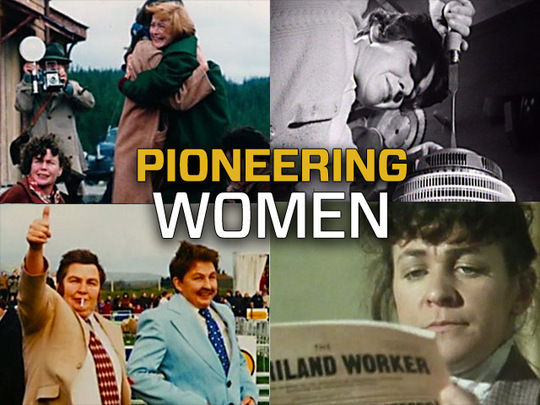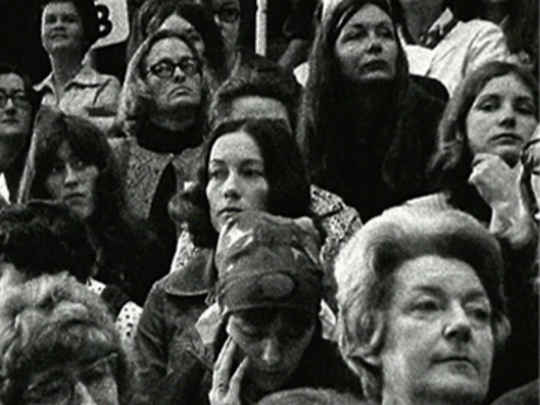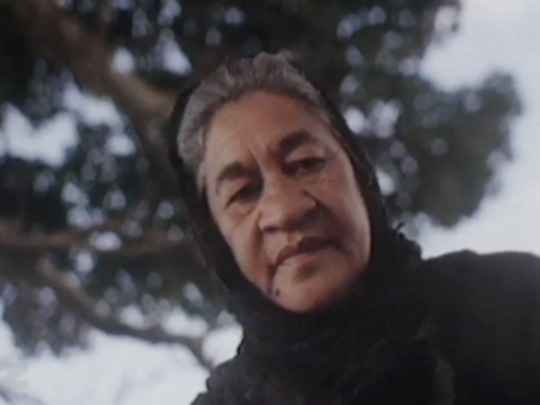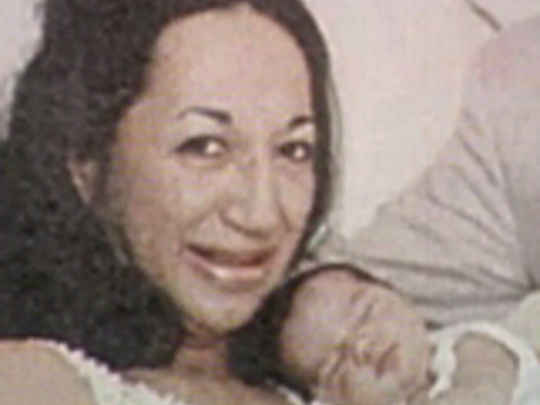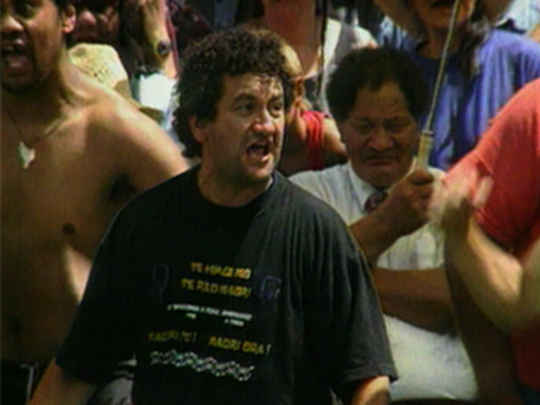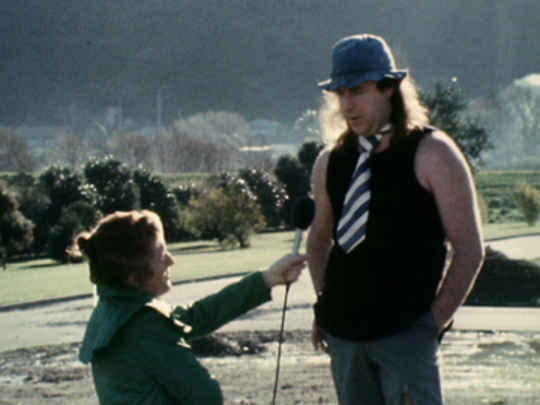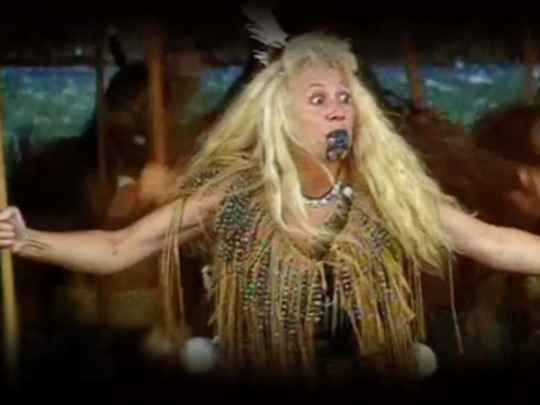These films are about the way women feel, almost totally. They're to enable women's experiences to surface.
– Researcher Julie Thompson on the mission behind the Women series, Broadsheet 52, September 1997, page 17
We felt we had to make documentary films. We felt the strongest thing we could do was to go to women and get from women how they felt in their lives. There was so much there any way which hadn't been shown.
– Editor Carole Stewart on the intention behind the show, Broadsheet 52, September 1997, page 16
I had a European, Pākehā education, and according to the laws of the education system at that time, Māori, our language was not spoken and taught, so I grew up with these values and looked down upon my Māori people. Until I came to the time when I came face to face with pain and death — I lost both my Mum and Dad. And there, I found the sense of belonging that my Māori people worked with me and shared my grief, and I found the richness in belonging and I was free, I was somebody...so I became a searcher for my Māoritanga . . . the richness of my culture.
– Eva Rickard describes her journey towards finding her Māori identity
They have a wealth of knowledge, especially in hunting and in planting foods. Astronomy plays a great part in Māori planting food. The most important thing in the Māori community would be to teach the women how to hunt and fish, and these older Māori kuias of ours would be able to teach them...
– Eva Rickard on wanting to see Māori women return home, reclaim their traditional skills, and find a sense of belonging
I think after the 70s we got a lot better. I think things for women and Māori and for other ethnic minorities improved by the sheer power of — well they call us radicals — but those of us striving for our sheer humanity to be respected. The women’s liberation movement definitely moved things forward. But where we got knocked back was neoliberalism. It’s knocked the poor, and it’s knocked women, and it’s knocked Māori. We’re so much worse off now than we were in the 50s, 60s and 70s because the economic chasm has grown. And the selfishness of the handful of privileged New Zealanders who hold that power and have been allowed to get away with it. So the movement for change can’t be one for just Māori or just women. It really has to be united.
– Donna Awatere Huata in an interview with The Spinoff, 8 August 2018
Māori culture is not a static thing; it never was. It was continually evolving, and this is the way I see that we — some of the young Māori people now — are evolving that culture one step further.
– Donna Awatere Huata on the need for generational change in a culture
It was such a difficult task trying to find a house, that the only way I saw around it was to lie about my situation. In phone interviews I used a European name. In confrontation with a landlord I sent Pākehā friends. I lied about the number of children I had, I said I only had one. Then I wove an elaborate story about suddenly being found with four children because their mother was ill, or some such. And this is what it does to you — it makes a liar out of you, a cheat.
– Merata Mita on having to lie in order to house her family
Māori women are pushed down in three ways; they're oppressed because of race, because of class and because of sex.
– Educational psychologist Donna Awarere Huata lays it on the line, at the start of this episode
When we look at the education system, the language of education is white, middle class language. Now Māori children speak a linguistically different language — this has been shown by many studies. Now it's neither better, nor worse, it's different, so that many Māori children are going through school not understanding the language that's being used.
– Donna Awatere Huata on Māori children struggling in the Pākehā educational system, early in this episode
Landlords know more than anyone how difficult it is for a woman who is a solo parent as well as a Māori, to find accommodation. And because they know this, they exploited my position by pressuring me to have sex in order to have decent accommodation. I found this absolutely disgusting. At that stage I had nothing left except my self-respect, my pride. And I certainly wasn't going to give that away.
– Merata Mita on the ugly scenario of urban landlords seeking to abuse their power over vulnerable wāhine
Considering the fact that fewer women held positions of authority in the workforce in 1977 than they do today, the presence of so many intelligent, articulate women with strings of degrees after their names was a political act in itself.
– Author Deborah Shepard on the expert opinions heard in the Women series, in her 2000 book Reframing Women - A History of New Zealand Film, page 59
Feminists have concentrated on the sex oppression part of it and have fixated on the fallacy that it is possible to achieve goals for women without also making challenges to white supremacy and capitalism. Without these challenges all that is sought are goals that don’t change the system and which are priorities only for the elite who aren’t as oppressed by these powers as others.
– Psychologist, author and MP Donna Awatere Huata in a 1982 interview, quoted on website The Spinoff, 8 August 2018



